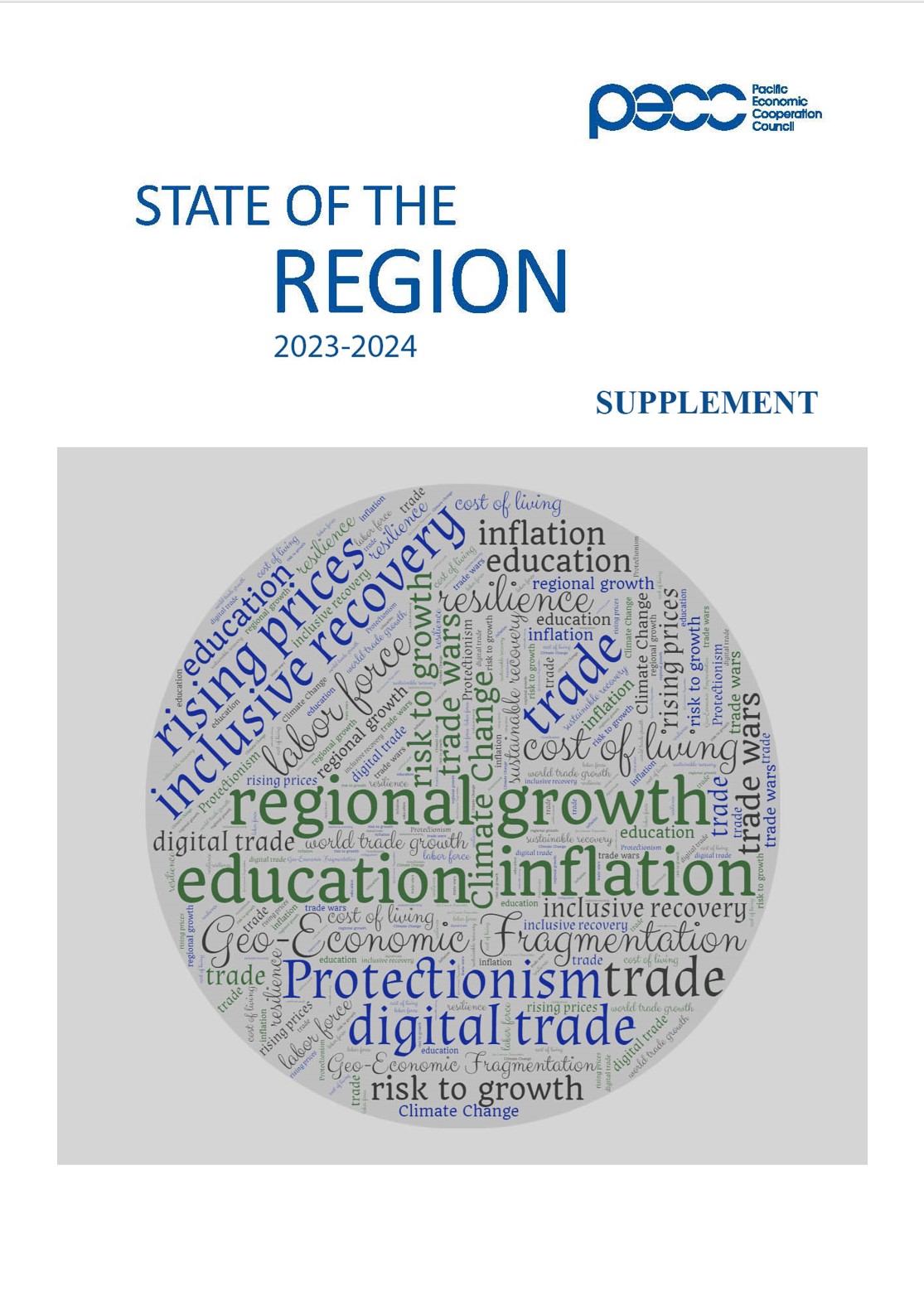
The Asia-Pacific region has shown remarkable resilience in the face of an uncertain environment. However, as the region heads into a ‘new normal’ the shape and form of economic growth are likely to be substantially different from the pre-pandemic period. As demonstrated by concerns expressed by respondents to PECC’s annual survey, the regional policy community is concerned with the rise in the cost of living; climate change; a slowdown in world trade growth; geo-economic fragmentation; and increased protectionism and trade wars. All of these risks, if they materialize, will impact APEC’s efforts to achieve the Putrajaya Vision of an open, dynamic, resilient and peaceful Asia-Pacific community by 2040, for the prosperity of all our people and future generations.
Prior to the pandemic, the expected average growth rate for the 2000-2024 period was about 3.3 percent a year, more recent forecasts expect regional growth to be 0.7 percentage points lower at 2.6 percent. This year, the region is expected to grow by about 3.2 percent before weakening to 2.7 percent in 2024. This stands in sharp contrast to the heady days of the 1990s, when, in spite of the 1997-98 crisis the region grew at 3.5 percent and again in the 2000s when, again, even with the Global Financial Crisis, the region grew at an average of 3.4 percent.
Download full report: State of the Region 2023 - Supplement
EDITORIAL COMMITTEE
Eduardo PEDROSA
Secretary General, PECC International Secretariat / Coordinator of State of the Region
Christopher LANGMAN
AUSPECC/ Chair
Sharon Zhengyang SUN
CANCPEC
ZHAO Yali
CNCPEC/ Vice Chair
Yose Rizal DAMURI
INCPEC/ Co-Chair
Kenichiro SASAE
JANCPEC/ Chair
Chul CHUNG
KOPEC/ Vice Chair
Gerard TRASLOSHEROS
MXCPEC/Chair
Alan BOLLARD
NZPECC/Chair
TAN Khee Giap
SINCPEC/Chair
Chien-Yi CHANG
CTPECC/Chair
Charles E. MORRISON
USPECC
VO Tri Thanh
VNCPEC/Chair
CONTENTS:
Asia-Pacific Economic Outlook.
Section 1: Towards a Sustainable Recovery.
Slower Regional Growth.
Section 2: Inflation: Higher for Longer.
Section 3: Rising Concerns Over Climate Change.
Section 4: Rising Protectionism and Geo-Economic Fragmentation.
Section 5: Towards an Inclusive Recovery.
Section 6: Towards More Inclusive Trade.

